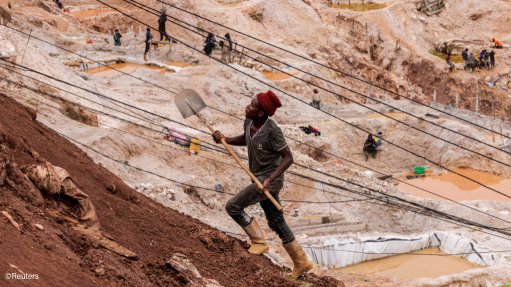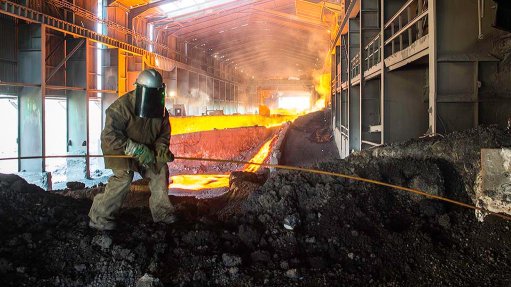Robots have been playing some vital roles amid Covid-19 pandemic
Robots have seen increased use during Covid-19, especially within the human-assistance role in the healthcare sector, according to panellists who spoke during the SingularityU South Africa Summit 2020 on October 14.
Nigeria-based robot company Reach Robots CEO Silas Adekunle and Denmark-based service robot company GoBe Robots sales and community VP Thomas Willemann spoke during a session on ‘Robots to the rescue during Covid-19’.
The outbreak of a novel disease such as Covid-19 led to many people being isolated and quarantined, thereby resulting in people having to avoid or reduce human-to-human contact to an unprecedented degree.
Adekunle and Willemann stated that interest in robots and interest in their companies’ products had increased significantly during the global first wave of Covid-19.
Willemann said that, while video conferencing and virtual meetings have been used more to facilitate remote working during Covid-19; so too has the need for people to have more interactive forms of communication, which is where GoBe’s service-type robots can come into play.
These robots are designed to facilitate human-to-human interaction in a more interactive manner, making the virtually hosted person feel as though they are more present than simply being on a computer monitor or television screen.
As such, GoBe robots have been deployed in healthcare facilities to assist with patient interaction and remote diagnosis.
“How GoBe robots work is that the user is in one location and the robot is in another location and connection is made through the Internet”, he says, pointing out that the technology can be used anywhere where there is an Internet connection.
The conventional alternative for healthcare professionals is to dress in extensive personal protective equipment and continually go through disinfection processes as they meet with multiple patients.
“With a robot, they can just enter a room [virtually], interact with a patient in a very direct and intuitive manner and then exit and proceed to the next room,” says Willemann. He adds that, in using the technology in this way, healthcare professionals are reducing the risk of spreading disease because human-to-human interaction is limited.
Meanwhile, Adekunle says that it is a “no-brainer that [the use of] robotics and automation will keep increasing”, because right at the start of the Covid-19 pandemic, it became evident that some of the countries were further advanced in their robotics journeys, which was evidenced through the pace and extent to which they could adapt robotics and deploy them to assist in the fight against the disease.
“China, for example, being at the centre of the epidemic and where quarantining became increasingly important, started using robotics to deliver food in hospitals and other related things,” he says.
Further, Adekunle points out that, from a global perspective, we are starting to move from robots being used mostly in research laboratories to robots working in the real world and in busier environments with greater external influences.
Comments
Announcements
What's On
Subscribe to improve your user experience...
Option 1 (equivalent of R125 a month):
Receive a weekly copy of Creamer Media's Engineering News & Mining Weekly magazine
(print copy for those in South Africa and e-magazine for those outside of South Africa)
Receive daily email newsletters
Access to full search results
Access archive of magazine back copies
Access to Projects in Progress
Access to ONE Research Report of your choice in PDF format
Option 2 (equivalent of R375 a month):
All benefits from Option 1
PLUS
Access to Creamer Media's Research Channel Africa for ALL Research Reports, in PDF format, on various industrial and mining sectors
including Electricity; Water; Energy Transition; Hydrogen; Roads, Rail and Ports; Coal; Gold; Platinum; Battery Metals; etc.
Already a subscriber?
Forgotten your password?
Receive weekly copy of Creamer Media's Engineering News & Mining Weekly magazine (print copy for those in South Africa and e-magazine for those outside of South Africa)
➕
Recieve daily email newsletters
➕
Access to full search results
➕
Access archive of magazine back copies
➕
Access to Projects in Progress
➕
Access to ONE Research Report of your choice in PDF format
RESEARCH CHANNEL AFRICA
R4500 (equivalent of R375 a month)
SUBSCRIBEAll benefits from Option 1
➕
Access to Creamer Media's Research Channel Africa for ALL Research Reports on various industrial and mining sectors, in PDF format, including on:
Electricity
➕
Water
➕
Energy Transition
➕
Hydrogen
➕
Roads, Rail and Ports
➕
Coal
➕
Gold
➕
Platinum
➕
Battery Metals
➕
etc.
Receive all benefits from Option 1 or Option 2 delivered to numerous people at your company
➕
Multiple User names and Passwords for simultaneous log-ins
➕
Intranet integration access to all in your organisation


















